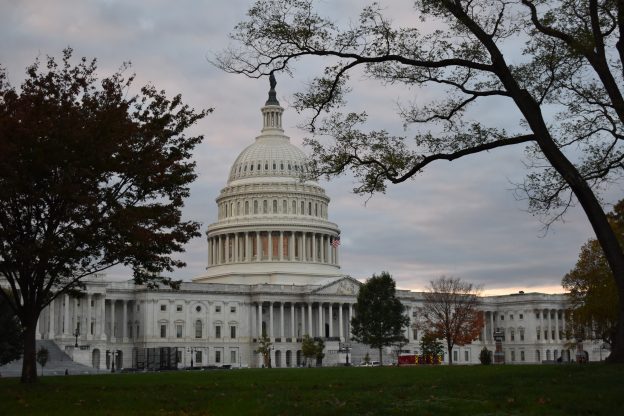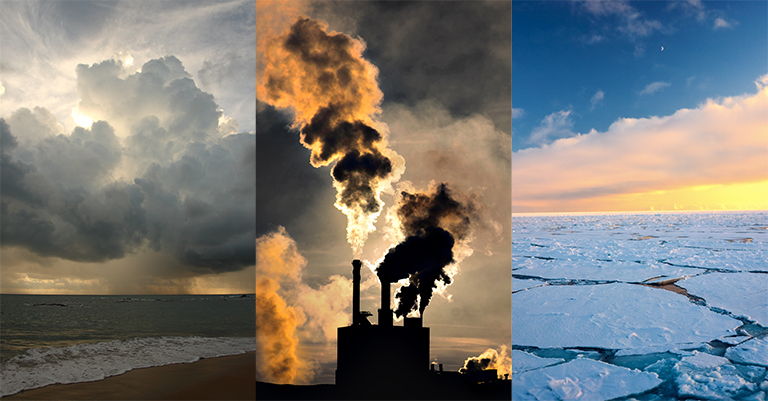
Anya Marquardt is a sophomore English major with a minor in journalism.
Although more aggressive climate legislation is needed, the road to a greener future must begin small and progress to a larger agenda. After all, we have just exited an administration that engaged in a rollback of climate policy and environmental regulations.
While greenhouse gas emissions decreased in 2020 because of the COVID-19 pandemic, the drop will not be as effective due to the relaxation of these policies.
The Trump administration used the COVID-19 pandemic as a reason to allow large factories to emit more greenhouse gases without getting fined or subjected to breaking any environmental rules and regulations. Many of the lawmakers who backed legislation in support of climate action are still in office, so we should concentrate on finding common ground before taking a more radical stance.
The Green New Deal has had a long and interesting history over the past 15 years. The Green New Deal, which was first suggested during the financial crisis of 2007-2008, has been one of the most divisive issues in American politics.
Two groups formed during this time with the goal of lobbying the Green New Deal, with one in the United States and the United Kingdom. The UK-based group gained traction when they published a proposal detailing their plan in July 2008. Several other groups, including The Green Party of England and Wales and the United Nations Environment Programme, threw their support behind the Green New Deal in the following years.
Nearly 10 years after its original formation, a youth activist group called the Sunrise Movement held a sit-in outside House Speaker Nancy Pelosi’s office after the 2018 midterm elections. Democratic Representative Alexandria Ocasio-Cortez joined the sit-in and eventually supported their proposal. In doing so, she helped to create the framework for what we now know as the Green New Deal.
So, why is it so contentious? To begin with, it seeks legislation on a scale that no other climate bill has even attempted.
Some main points include reducing carbon emissions to zero by 2050 (meaning we must absorb the same amount of carbon that we are releasing into the atmosphere), creating millions of high-paying jobs in the “clean energy division,” pushing to end environmental racism and ensuring that clean air, water and healthy food are viewed as fundamental human rights. It would take the greatest form of unity between political parties for a bill like this to pass.
Many of the issues with the Green New Deal are coming from a few different places: bipartisan politics, the economy and blatant disbelief of climate change.
An alarming number of people either believe that climate change is not real, or that it is a “future problem.” Over 100 current members of Congress have been skeptical of climate change or have outwardly denied its existence. Only one of these members does not belong to the Republican Party, which has strongly opposed the bill since Ocasio-Cortez proposed it in 2018.
Republican Sen. Tom Cotton of Arkansas has called the bill a “radical vision for humanity” and has spread false information about the bill, claiming that the deal would “confiscate cars.” The lack of bipartisan support for such a prominent bill is a huge roadblock in both passing the bill and in gaining public support for it.
There have also been differing viewpoints on the economic impact of the Green New Deal. The Wall Street Journal Chief Economics Commentator Greg Ip believes that the ends do not justify the means, given the costs to implement the goals of the Green New Deal.
Republican Sens. Mitch McConnell, John Barrasso, John Cornyn and various others have claimed that it will cost the U.S. approximately $93 trillion, which was estimated by the American Action Forum — a politically-skewed, right-leaning institute. This is all just another example of how bipartisan politics are hiding the facts that the public has a right to know.
Ocasio-Cortez did not give a price estimate when first presenting the plan, but later stated that it would cost at least $10 trillion and acknowledged that this was a hefty price, “I don’t think anyone wants to spend that amount of money, it’s not a fun number to say, I’m not excited to say we need to spend $10 trillion on climate, but … it’s just the fact of the scenario,” she said.
News networks like Fox News have been peddling false information about climate change for years, calling it a “climate hoax.” According to a 2020 poll from Yale University, half of Fox News viewers believe that natural occurrences have caused the current climate crisis instead of human activity.
Based on its current demands, I don’t believe the Green New Deal can pass. Too many members of Congress have openly voiced their disapproval of the bill in its current form. Bipartisan support for the bill is almost non-existent, with Democratic Party support overwhelmingly in favor of it.
In order to address climate change, legislation must be passed. While I agree with many of the proposals outlined in the Green New Deal, I do not believe that such a bill will be passed soon. But even if we don’t agree with all the Green New Deal proposes, we can see it as a positive step toward solving one of the world’s most pressing problems.
Climate change is not a “future crisis,” as some people believe. As the Green New Deal states, climate change is already affecting our world; we won’t be able to deter or slow it down unless we take drastic measures to fix it soon.




















